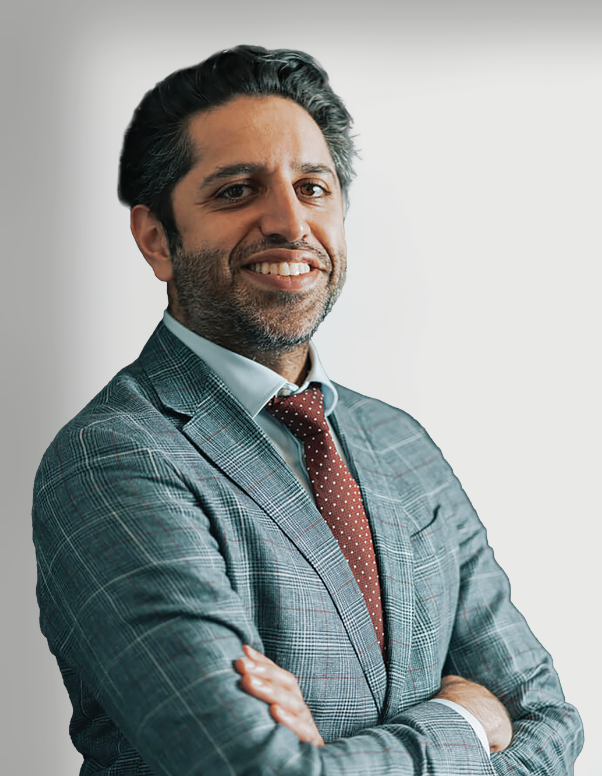- Case-Based Roundtable
- General Dermatology
- Eczema
- Chronic Hand Eczema
- Alopecia
- Aesthetics
- Vitiligo
- COVID-19
- Actinic Keratosis
- Precision Medicine and Biologics
- Rare Disease
- Wound Care
- Rosacea
- Psoriasis
- Psoriatic Arthritis
- Atopic Dermatitis
- Melasma
- NP and PA
- Skin Cancer
- Hidradenitis Suppurativa
- Drug Watch
- Pigmentary Disorders
- Acne
- Pediatric Dermatology
- Practice Management
- Prurigo Nodularis
- Buy-and-Bill
News
Article
Introducing Omar Noor, MD, FAAD: Dermatology Times' Newest Editorial Advisory Board Member
Noor, the co-owner of Rao Dermatology, shares about his interests in dermatology and what he most looks forward to as a member of our board.
Dermatology Times is thrilled to introduce the newest member of our Editorial Advisory Board.
Omar Noor, MD, FAAD, is a board-certified dermatologist practicing in New York and New Jersey and is the co-owner of Rao Dermatology.
We spoke with Noor about his journey in dermatology, interests and specialties, and what he hopes to accomplish in the field. He also discussed what he is most looking forward to as a board member.
"I hope to raise the bar of baseline dermatology education across the board in order for more patients to have exceptional access to care," Noor said.
Read our introductory Q&A with Noor below, and be sure to read and watch previous news and interviews where Noor shares insights into vitiligo, atopic dermatitis, cultural competency, equitable care for patients with skin of color, and more.

Q&A
Q: Can you provide a brief overview of your background and experience in dermatology?
A: I went to Medical School at George Washington University and completed my dermatology residency at Rutgers Robert Wood Johnson School of Medicine where I served as chief resident. I graduated residency roughly 10 years ago. I started my dermatology career as a partner in my practice from day 1 with a focus on medical dermatology and a keen focus on practice management and efficiencies in my practice.
Q: What inspired you to pursue a career in dermatology?
A: I am lucky to come from a family of physicians. My 2 brothers are radiologists, and I have grown up surrounded by different perspectives of the medical field. I have always had a micromanaging type of personality that likes to tweak everything to get the best response. Dermatology offered an opportunity to communicate with patients, do procedures, and run a practice.
Q: What are your primary areas of interest or specialization within the field of dermatology?
A: Atopic dermatitis and psoriasis.
Q: Could you share some insights into any current research projects or clinical work you're involved in?
A: My largest focus is on dermatology education for advanced practice providers--Working on curriculum and opportunities to facilitate better patient care. Clinically, I am working on inflammatory disease pathways and identifying targets for treatment.
Q: What do you like the most about Dermatology Times, and what do you hope to bring to readers by joining our Editorial Advisory Board?
A: Dermatology Times provides a unique opportunity to disseminate relevant and helpful dermatologic information in a flexible and easily digestible way. The numerous forms of media used by Dermatology Times allows great access to so many providers. I hope to continue to expand and provide further insights on that ability to help educate.
Q: In your opinion, what are some of the most significant challenges or opportunities facing dermatologists today?
A: The ever changing insurance market of reimbursements and access to care for our patients is a very complex system. The more dermatologists understand and can work with this system, the better we can care for our patients.
Q: How do you see the future of dermatology evolving, particularly in terms of technology and treatment approaches?
A: The world is getting smaller and more personalized. As we learn more basic science and can target specific features of diseases unique to individuals, we can then personalize care and be more efficient with helping our patients.
Q: What do you hope to achieve or accomplish within the realm of dermatology in the next few years?
A: I hope to raise the bar of baseline dermatology education across the board in order for more patients to have exceptional access to care.






